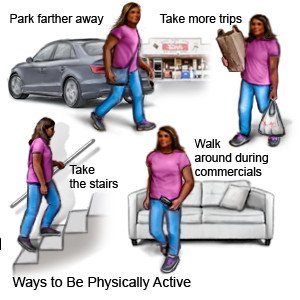Bowel Incontinence
Medically reviewed by Drugs.com. Last updated on Aug 4, 2025.
Bowel incontinence is when you lose control over your bowel movement. Liquid or solid bowel movement may leak from your anus. Bowel incontinence may be a short-term or long-term problem.
DISCHARGE INSTRUCTIONS:
Return to the emergency department if:
- You have severe abdominal pain.
- You have blood in your bowel movement.
- You have trouble eating, drinking, or keeping food down.
- Your skin, mouth, and tongue are dry, and you feel very thirsty.
- You feel lightheaded, weak, or faint.
- You are confused or cannot think clearly.
Call your doctor if:
- You have a fever.
- You have new symptoms.
- Your symptoms do not improve, or they get worse.
- You have questions or concerns about your condition or care.
Medicines:
- Medicines may help treat diarrhea or constipation. Your healthcare provider may also recommend fiber supplements, such as psyllium. Fiber supplements help bulk your bowel movement and decrease bowel incontinence. Ask your provider which type of fiber is right for you.
- Take your medicine as directed. Contact your healthcare provider if you think your medicine is not helping or if you have side effects. Tell your provider if you are allergic to any medicine. Keep a list of the medicines, vitamins, and herbs you take. Include the amounts, and when and why you take them. Bring the list or the pill bottles to follow-up visits. Carry your medicine list with you in case of an emergency.
Manage bowel incontinence:
- Relieve anal discomfort. You may have irritation, itching, or pain around your anus. Relieve discomfort by washing the area after each bowel movement. Keep the area dry and wear loose-fitting clothing. A moisture-barrier cream may reduce discomfort. Ask your healthcare provider which cream is best for you.
- Do pelvic muscle exercises as directed. Your pelvic muscles help control your bowel movement. Pelvic exercises involve tightening and relaxing pelvic muscles. Squeeze these muscles tight for 5 seconds, then relax for 5 seconds. Gradually work up to squeezing for 10 seconds. Do 3 sets of 15 repetitions a day, or as directed. These exercises can make the pelvic muscles stronger and improve bowel control.
- Keep a bowel incontinence record. Write down how often you leak bowel movement and how much you leak. Make a note of what you were doing when you leaked.
- Keep a food diary. Keep a list of food and liquids you have each day. Write down any symptoms that develop. This will help to see if certain food causes your symptoms. Bring this to your follow-up visits.
- Prevent constipation. Eat a variety of high-fiber foods. Good examples are high-fiber cereals, beans, vegetables, and whole-grain breads. Prune juice may help make your bowel movement softer. Walking is the best way to trigger your intestines to have a bowel movement.

- Prevent diarrhea. Certain foods may loosen your bowel movement. Avoid caffeine, alcohol, fruit juice, and prunes. Do not eat beans, cabbage, or smoked or cured meat. Avoid dairy products and spicy foods.
- Drink liquids as directed. Ask your provider how much liquid to drink each day and which liquids are best for you.
- Train your bowel. A bowel program may help you learn how to plan for a bowel movement. For example, you will go to the bathroom at set times, such as every 2 hours or right after a meal. You will do this even if you do not feel the urge to go.
- Be physically active and maintain a healthy weight. Ask your provider what a healthy weight is for you. Extra weight puts pressure on your pelvic muscles and may make your symptoms worse. Your provider can help you create a weight loss plan, if needed. The plan will include ways to be physically active that will not put extra pressure on your pelvic muscles.

Treatment options
The following list of medications are related to or used in the treatment of this condition.
Follow up with your doctor as directed:
You may need to see a specialist depending on the cause of your symptoms. If you keep a bowel incontinence record or food diary, take it with you to your follow-up visits. Write down your questions so you remember to ask them during your visits.
© Copyright Merative 2025 Information is for End User's use only and may not be sold, redistributed or otherwise used for commercial purposes.
The above information is an educational aid only. It is not intended as medical advice for individual conditions or treatments. Talk to your doctor, nurse or pharmacist before following any medical regimen to see if it is safe and effective for you.
Learn more about Bowel Incontinence
Treatment options
Symptoms and treatments
Further information
Always consult your healthcare provider to ensure the information displayed on this page applies to your personal circumstances.
